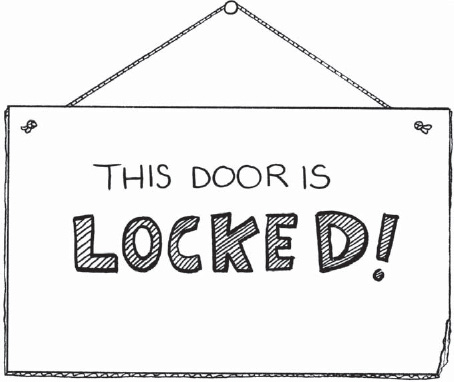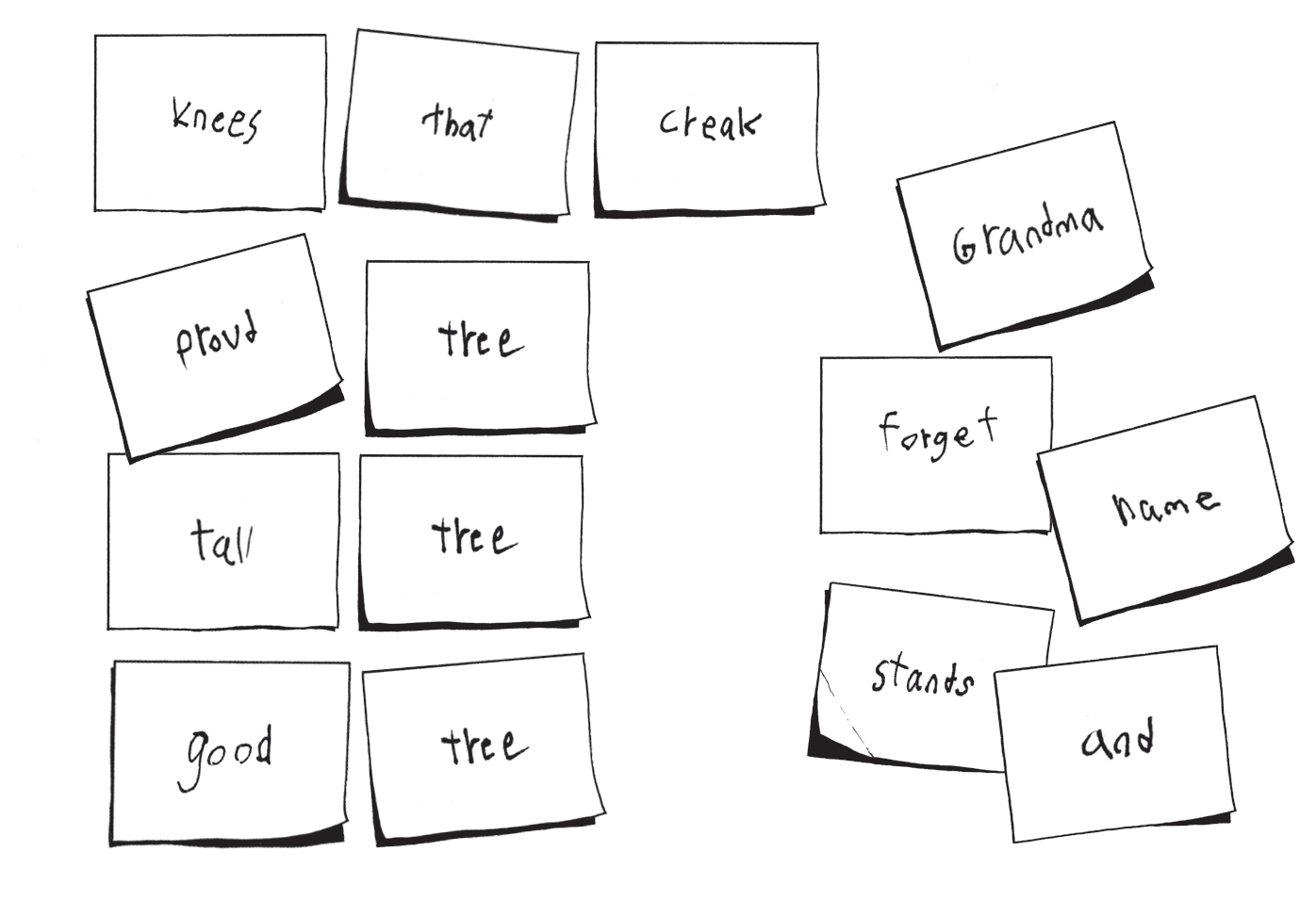The Candy Smash (3 page)
Authors: Jacqueline Davies

Â
Candy!
A box of candy hearts fell out of Jessie's Valentine's Day shoebox, and now all the kids were tearing open the lids of their own boxes and finding candy, too.
"Sweet!" Evan shouted, scooping up the miniature box of candy conversation hearts.
"Thanks, Mrs. Overton!" said Nina Lee when Mrs. Overton hurried into the classroom from the hallway. She'd been at the photocopier, making copies of the Poem of the Day.
"Thanks for what?" asked Mrs. Overton.
"The candy!" shouted Jack, holding his box high and rattling it as if it were a maraca.
"Where did this candy come from?" asked Mrs. Overton, looking surprised.
"Who cares?" said Scott, popping three candy hearts into his mouth and crunching loudly.
"I care!" said Mrs. Overton, her voice rising with alarm.
"Hey, look what my hearts say," said Tessa. She held one up. "
GREAT VOICE
."
"That's so weird!" said Cindy. Tessa had the best singing voice in the whole school. Every year, she sang in the talent show, and it was like watching an episode of
American Idol.
"Look at this!" said Christopher. He held up his candy heart. "Mine says
MASTERPIECE
." Christopher was always drawing, and when he grew up he planned to be an artist.
"What does yours say?" asked Jessie, turning to Salley Knight.
"It says
BEST LUNCH
." No one could argue with that. Salley's mom owned a restaurant, and she always packed the best food in Salley's lunchbox.
"Who brought these candies to school?" asked Mrs. Overton. No one had a clue. "Well, don't eat them," she said, but almost everyone had already popped the sugary hearts into their mouths.
"Should we spit them out?" asked David, sticking out his tongue with the melting candy on the tip of it.
"No! No spitting!" said Mrs. O. "Just..." She went to the class phone and made a quick call, then returned to the front of the class. "Let's refocus and get started on our morning work," she said. "We've got a lot to do today."
But it was a good five minutes before everyone stopped comparing the messages written on their candy hearts:
BEAUTIFUL HAIR, YOU MAKE ME LAUGH, MATH GENIUS.
All of them seemed to say something
about
the person.
All of them except for Evan's. His just said
FOR YOU
. Well, he didn't care what the candy
said
as long as it was candy. He popped three hearts in his mouth and shoved the box in his back pocket.
On the playground at lunch recess, most of the kids agreed that it must have been Mrs. Overton who had left the candy hearts for them. She had pulled a few sneaky-surprise tricks on them during the year. In January when they were studying the Revolutionary War, she'd had Officer Ken come to school and arrest them all on charges of sedition. During their famous inventors unit, which happened to fall around Halloween, she had left strange things around the classroom (burned-out light bulbs, bits of wire and springs, an antique crank phonograph, and a few ghoulish notes on the blackboard) that seemed to suggest that the ghost of Thomas Edison was haunting 4-O. Evan figured this was just one more prank.
Â
"I'm home!" Evan shouted the next day as he walked through the front door after practice, dropping his basketball in the hall and taking off his sneakers.
"Garage, please," said his mom, pointing to the ball and the shoes. "How was practice?" she asked after Evan came back into the kitchen to grab a snack.
"Great. My team won both scrimmages. Can I eat this in my room?" He held up a banana.
"Yes, but don't leave the peel in your trash can. It'll smell." Mrs. Treski was standing at the kitchen counter, chopping vegetables. She had already made a neat pile of diced carrots and another one of onions, and now she was slicing up celery. That meant enchiladas for dinner! This day just kept getting better and better.
"And don't eat more than that," said Mrs. Treski as Evan headed up the stairs. "Dinner's in an hour."
Evan went up to his room and stuck the Locked sign on the outside of his door before closing it. There weren't any actual locks on the bedroom doors in their house, but Mrs. Treski believed everyoneâeven kidsâhad a right to privacy. So they each had a laminated cardboard sign that they could hang on their doors. When the sign was up, it meant everyone else in the family had to act as if the door was actually locked.
Â

Â
Before this school year, Evan had almost never "locked" his door. But now that he and Jessie were in the same class at schoolâtogether all day, including lunch and recessâhe needed more privacy. On top of that, Grandma had moved in after New Year's, so now the house felt extra crowded. It was starting to become a habit for him to put up the Locked sign.
Evan unzipped the small pocket on the front of his backpack and pulled out a folded piece of paper. Lying on his bed, he began to read the words quietly to himself.
Â
M
USHROOMS
by Sylvia Plath
Â
Overnight, very
Whitely, discreetly,
Very quietly
Â
Our toes, our noses
Take hold on the loam,
Acquire the air.
Â
Nobody sees us,
Stops us, betrays us;
The small grains make room.
Â
Soft fists insist on
Heaving the needles,
The leafy bedding,
Â
Even the paving.
Our hammers, our rams,
Earless and eyeless,
Â
Perfectly voiceless,
Widen the crannies,
Shoulder through holes. We
Â
Diet on water,
On crumbs of shadow,
Bland-mannered, asking
Â
Little or nothing.
So many of us!
So many of us!
Â
We are shelves, we are
Tables, we are meek,
We are edible,
Â
Nudgers and shovers
In spite of ourselves.
Our kind multiplies:
Â
We shall by morning
Inherit the earth.
Our foot's in the door.
Â
"Mushrooms" from THE COLOSSUS AND OTHER POEMS by Sylvia Plath, copyright © 1957, 1958, 1959, 1960, 1961, 1962 by Sylvia Plath. Used by permission of Alfred A. Knopf, a division of Random House, Inc. Any third party use of this material, outside of this publication, is prohibited. Interested parties must apply directly to Random House, Inc. for permission. For on-line information about any other Random House, Inc. books and authors, see the Internet web site at
www.randomhouse.com
.
Â
It was the Poem of the Day that Mrs. Overton had read to them that morning in class. She always made extra copies and left them on the windowsill so that anyone who wanted to could take one home. On his way out to recess, Evan had told his friends he'd forgotten his gloves. When he went back into the classroom, he'd sneaked a copy of the poem and slipped it in his backpack.
If the whole class hadn't gone over the poem that morning, he would have had trouble reading the words "acquire" and "edible." He wouldn't have known that "loam" was just another word for dirt, or that "discreetly" meant carefully and quietly, while "crannies" were little openings, and "bland" meant boring and tasteless.
But they had gone over the poem, several times, and now Evan could read it confidently to himself, and he loved the way it sounded. He loved to say, "Our toes, our noses / Take hold on the loam." All those "oh" sounds, like marbles rolling across a wooden floor. He liked the phrase "soft fists"âthe way one word said the opposite of the other but with almost exactly the same letters! And then when it got to the shouting part, "So many of us! / So many of us!"âMrs. Overton had had them stand up and raise their arms over their heads to shout out the wordsâEvan couldn't help but feel the thrill of the mushrooms taking over the world. It was like
Planet of the Apes
âbut better sounding. Like music.
Knock. Knock.
Evan kept his eyes on the poem. "Go away!"
"Why?" asked Jessie through the closed door. "Why can't I come in?"
"Because I'm busy."
"Doing what?"
"Jeez, Jessie! If I wanted to have a conversation, I'd leave my door open. Locked means locked!"
"Yeah, but I need help."
"I'll help you later, okay?"
"Oh, fine! You stink," she said. Evan could hear her walking away.
Evan got up from the bed and walked over to his desk. It was piled high with Lego contraptions and loose change and dirty socks and a scuffed-up baseball and old
Mad
magazines and
K'NEX
. Evan never worked at his desk. Whenever he had homework to do, he did it at the kitchen table with his mom in the room. That way, she could help him when he couldn't figure something out or give him a pep talk when he felt like tearing his paper to pieces.
Quickly he moved everything onto the floor so that the desk became a wide open space, like a smooth stretch of beach. He sat down and spread his hands across the top. Then he reached down into his backpack and pulled out the stack of Post-it notes that Mrs. Overton had given each of them today during Literacy Block.
Jessie, of course, loved Post-it notes. They were her favorite office product. She had them in every color and used them all over her room to remind her of important things. But Evan had never thought much about them until today when Mrs. Overton had shown the class what they could do.
He looked at the mushroom poem again. He read the first stanza. Just six words. That was all. Anyone could write six words.
Evan stared at the wall and thought about his grandmother.
Well, first of all, she was old. So old that her knees made creaking noises when she stood up. But she still did yoga every day. She said it was good for her balance. She could even stand on one leg like a tree. Sometimes, though, Grandma's brain wasn't balanced. She could forget things. Like Evan's name. He hated when that happened.
Evan peeled off the first Post-it note and stuck it to his desk. He wrote "Grandma" on it. Then he peeled off another one and wrote "tree." Then he wrote four more words, each on its own note.
He lined up the Post-it notes on his desk like soldiers marching in a parade.
Â

Â
That's not a poem,
he thought.
At least, not a good one.
But he liked the way "tree" and "knees" and "creak" sounded together, so he put those words on a line all by themselves.
Then he thought about a tree, and he wrote "tall" and "proud" and "good," each word on its own Post-it note. Just as they'd done in class. The Post-it notes were like blocks, and Evan was good at moving them around, adding new words, new blocks, throwing out the ones he didn't like.
Â

Â
He listened to the sound of the words, whispering them out loud as he moved the Post-it notes all over his desk. He felt like he was building something, watching it grow under his hands.
